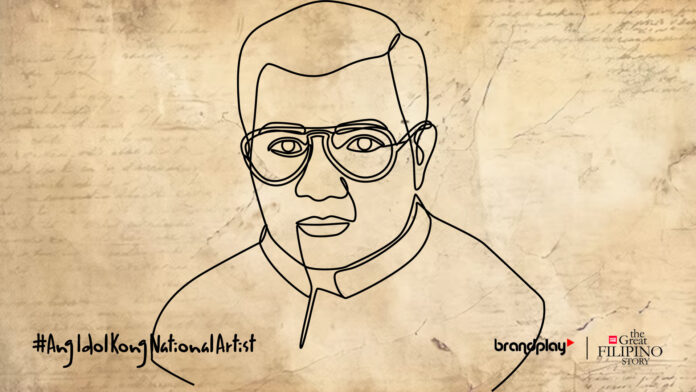Lino Brocka is regarded as a key figure in Philippine cinema, celebrated for his pioneering films that address social issues, human rights, and the complexities of Filipino life. Over a career that spanned more than two decades, Brocka’s impact on the film industry and his dedication to compelling storytelling have profoundly influenced both local and international audiences.
Born on April 3, 1939, in Pilar, Sorsogon, Catalino Ortiz Brocka grew up during a time of political and social upheaval in the Philippines. From a young age, Brocka developed a profound passion for cinema, particularly captivated by Hollywood classics that he often watched in a rundown theater in his hometown of San Jose, Nueva Ecija. His fascination with storytelling and visual art was evident early on, as he stood out not just for his academic excellence but also for his skills in debate.
Lino was a brilliant and expressive child who loved performing, often reciting poetry to his family, which showcased his artistic flair. His oratory talent earned him accolades, further fueling his desire to engage with the arts. This drive led him to establish a community theater group, allowing him to share his love for performance and storytelling with others in his community, laying the foundation for his future in filmmaking. He graduated from Nueva Ecija High School in 1956. He then attended the University of the Philippines to begin working in theater, acting and directing plays, things that served as gateways to his career in cinema and television.
Brocka’s directorial career began in the 1970s, a time when Philippine cinema was evolving amidst the backdrop of Martial Law. His breakout film, “Maynila: Sa Mga Kuko ng Liwanag” (Manila: In the Clutches of Light) in 1975, garnered critical acclaim and established him as a force in filmmaking. The film’s raw portrayal of urban poverty and the struggles of the marginalized resonated deeply with audiences and earned Brocka recognition as a master storyteller.
As a Filipino filmmaker recognized for his socially aware films, Brocka prioritized telling the stories of everyday Filipinos rather than adhering to conventional commercial formulas. His work frequently tackled themes of poverty, inequality, and the urgent need for social change. By doing so, he elevated Philippine cinema to a respected art form and earned a reputation as one of the country’s greatest filmmakers.
Brocka’s films served as a lens through which he examined and critiqued Filipino society, combining visual appeal with powerful social messages that resonated deeply with audiences. Brocka’s films are renowned for their bold narratives and incisive social commentary, often delving into taboo subjects that many filmmakers shied away from. His notable works like “Insiang”, “Bona”, and “Oro Plata Mata”, exemplify his remarkable talent for blending emotional depth with stark realism, garnering critical acclaim both in the Philippines and abroad.
A vital aspect of Brocka’s legacy lies in his unwavering dedication to activism. He leveraged his platform to advocate for social change, consistently challenging the status quo through his films. His commitment to authentically portraying the realities of Filipino life went beyond mere entertainment; it educated and inspired audiences to reflect on their circumstances and the societal issues surrounding them. Brocka’s ability to engage viewers emotionally while prompting them to think critically about their world solidified his position as a transformative figure in Philippine cinema.
Lino Brocka received numerous awards and accolades throughout his illustrious career, cementing his status as one of the greatest filmmakers in Philippine cinema. Notably, he won the Best Director award at the Cannes Film Festival for his film “Maynila: Sa Mga Kuko ng Liwanag,” marking a significant milestone for Philippine cinema on the international stage.
He also received multiple FAMAS Awards (Filipino Academy of Movie Arts and Sciences) for his outstanding contributions to film, including Best Director and Best Screenplay for various works. Additionally, Brocka was honored posthumously with the Gawad CCP Para sa Sining (Cultural Center of the Philippines Award) and the title of National Artist for Film in 1997, recognizing his profound impact on the industry.





